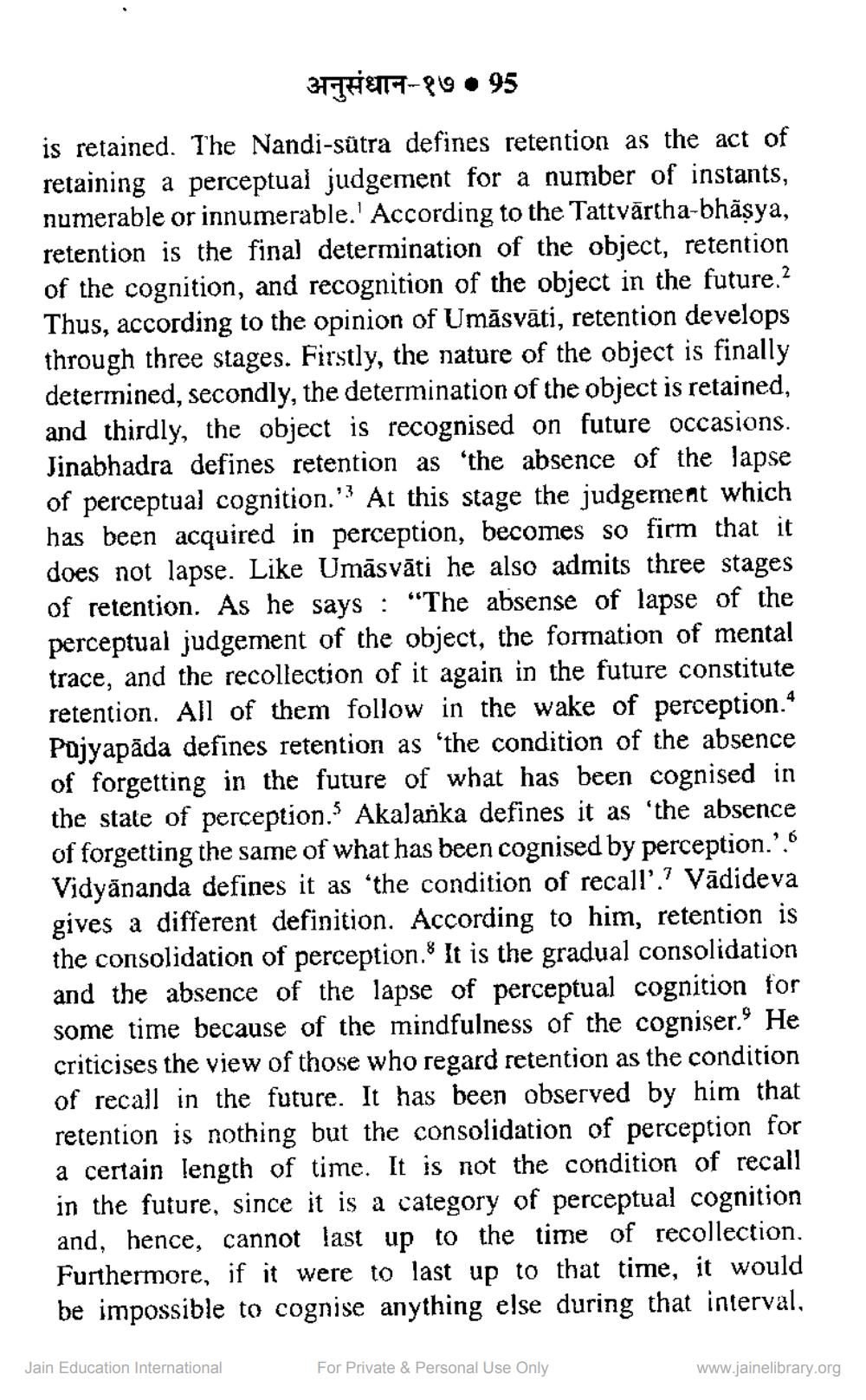Book Title: Jaina Concept of Memory Author(s): Mohanlal Mehta Publisher: ZZ_Anusandhan View full book textPage 2
________________ 37THENTY-819.95 is retained. The Nandi-sútra defines retention as the act of retaining a perceptual judgement for a number of instants, numerable or innumerable.' According to the Tattvārtha-bhâsya, retention is the final determination of the object, retention of the cognition, and recognition of the object in the future.? Thus, according to the opinion of Umāsvāti, retention develops through three stages. Firstly, the nature of the object is finally determined, secondly, the determination of the object is retained, and thirdly, the object is recognised on future occasions. Jinabhadra defines retention as the absence of the lapse of perceptual cognition.'? At this stage the judgement which has been acquired in perception, becomes so firm that it does not lapse. Like Umāsvāti he also admits three stages of retention. As he says: "The absense of lapse of the perceptual judgement of the object, the formation of mental trace, and the recollection of it again in the future constitute retention. All of them follow in the wake of perception. Pajyapāda defines retention as 'the condition of the absence of forgetting in the future of what has been cognised in the state of perception. Akalarika defines it as 'the absence of forgetting the same of what has been cognised by perception.'." Vidyānanda defines it as 'the condition of recall’.? Vādideva gives a different definition. According to him, retention is the consolidation of perception. It is the gradual consolidation and the absence of the lapse of perceptual cognition for some time because of the mindfulness of the cogniser. He criticises the view of those who regard retention as the condition of recall in the future. It has been observed by him that retention is nothing but the consolidation of perception for a certain length of time. It is not the condition of recall in the future, since it is a category of perceptual cognition and, hence, cannot last up to the time of recollection. Furthermore, if it were to last up to that time, it would be impossible to cognise anything else during that interval, Jain Education International For Private & Personal Use Only www.jainelibrary.orgPage Navigation
1 2 3 4 5 6 7
